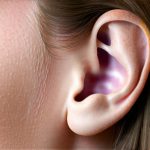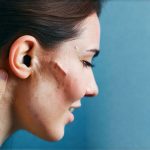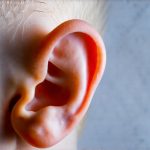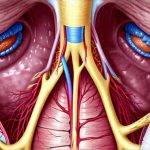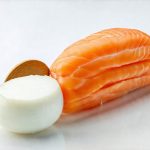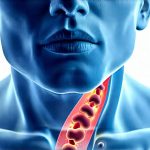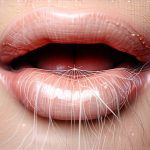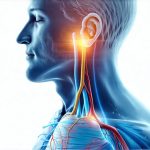Gastroesophageal reflux disease (GERD) is a surprisingly common condition affecting millions worldwide, often manifesting as heartburn and acid indigestion. However, its reach extends beyond these typical symptoms, sometimes presenting in ways that are less obvious and easily overlooked. One such manifestation—a temporary sensation of muffled hearing following a meal—is gaining increasing recognition as a potential, though often puzzling, consequence of GERD. This connection isn’t immediately intuitive, leading many to dismiss it or attribute the hearing change to other factors, delaying proper investigation and management. Understanding this link requires exploring the complex interplay between the digestive system, the Eustachian tubes, and even the middle ear itself.
The sensation of muffled hearing post-meal typically isn’t a complete loss of sound; rather, it’s a perceived dampening or fullness in the ears. It can feel as though you’re underwater or that sounds are distant and harder to distinguish. This effect usually lasts for a relatively short period – from minutes to an hour or two – after eating, and its occurrence often correlates with meals known to exacerbate GERD symptoms. While temporary, this experience can be disconcerting and impact daily activities, raising questions about the underlying cause and potential solutions. It’s crucial to differentiate between hearing changes related to GERD and those caused by other conditions such as ear infections or age-related hearing loss.
The Connection Between GERD and Eustachian Tube Dysfunction
The key to understanding this phenomenon lies in the Eustachian tubes. These small passageways connect the middle ear to the back of the throat, playing a vital role in equalizing pressure on both sides of the eardrum. This pressure equalization is essential for clear hearing. GERD can indirectly affect these tubes through several mechanisms. Gastric acid reflux, even mild or “silent” reflux that doesn’t cause noticeable heartburn, can irritate the tissues lining the esophagus and throat. This irritation extends to the areas surrounding the Eustachian tube openings, causing inflammation and swelling.
When the tissue around the Eustachian tubes becomes inflamed, it can obstruct their normal function. A blocked or partially blocked Eustachian tube struggles to equalize pressure in the middle ear, leading to that feeling of fullness or muffled hearing. The act of swallowing, which is naturally linked to Eustachian tube opening and closing, may become less effective when there’s inflammation present. This means the tubes can’t properly vent the middle ear, exacerbating the sensation of blockage. Furthermore, the vagus nerve plays a role in both digestive function and Eustachian tube control; stimulation from reflux events can potentially influence this nerve and affect Eustachian tube motility.
The association isn’t always straightforward. Some individuals with GERD may experience no hearing changes whatsoever, while others are acutely sensitive to even minor reflux episodes. Factors such as the severity of GERD, individual anatomy, and sensitivity to inflammation all play a role in determining whether muffled hearing will occur after eating. It’s also important to note that other causes of Eustachian tube dysfunction (allergies, colds, sinus infections) need to be ruled out before attributing it solely to GERD.
Identifying the Trigger Foods and Meal Patterns
Pinpointing which foods trigger both GERD symptoms and muffled hearing is a crucial step in managing this connection. The typical culprits for GERD are often the same ones that can contribute to Eustachian tube issues due to inflammation. These include: – Fatty or fried foods – they slow down gastric emptying and increase acid production. – Spicy foods – these irritate the esophageal lining. – Acidic foods (citrus fruits, tomatoes) – directly increase acidity in the stomach. – Caffeine and alcohol – both relax the lower esophageal sphincter, allowing reflux to occur more easily. – Carbonated beverages – they increase pressure in the stomach.
Beyond what you eat, how you eat also matters. Large meals put greater pressure on the lower esophageal sphincter, increasing the likelihood of reflux. Eating quickly or lying down immediately after a meal can further exacerbate the problem. Keeping a food diary for several weeks, noting both GERD symptoms and any changes in hearing, can help identify personalized triggers. This isn’t about eliminating entire food groups unnecessarily; it’s about understanding which foods specifically contribute to your symptoms and making informed choices. If you are looking for dietary guidance, consider building a gut-friendly meal plan.
A systematic approach to dietary modification is often the most effective strategy. Start by reducing or eliminating common trigger foods one at a time, observing any changes in both GERD and hearing sensations. Reintroduce foods gradually to see if they cause a recurrence of symptoms. Remember that everyone is different; what triggers one person may not affect another. Consistent monitoring and adjustment are key to finding a dietary pattern that minimizes discomfort and preserves hearing clarity. Creating a low FODMAP meal plan can also be beneficial for reducing digestive distress.
Diagnostic Approaches and When to Seek Medical Attention
If you consistently experience muffled hearing after meals, it’s essential to consult with a healthcare professional. A proper diagnosis is critical to rule out other potential causes of hearing loss or Eustachian tube dysfunction. An otolaryngologist (ENT doctor) can perform a comprehensive ear examination, including: – Otoscopy – visual inspection of the ear canal and eardrum. – Tympanometry – measures the movement of the eardrum to assess middle ear function. – Audiometry – hearing test to evaluate your ability to hear different frequencies.
In addition to an ENT evaluation, discussing your GERD symptoms with your primary care physician or a gastroenterologist is also important. They may recommend tests to confirm GERD diagnosis and assess its severity. These could include: – Endoscopy – visual examination of the esophagus and stomach using a flexible tube. – pH monitoring – measures the amount of acid in the esophagus over a period of time (typically 24 hours). – Esophageal manometry – assesses how well the muscles in your esophagus are functioning. If you’ve recently experienced symptoms, learning how to recover after a digestive flare up can provide relief.
It’s important to seek medical attention promptly if: – The muffled hearing is severe or accompanied by pain, dizziness, or balance problems. – Hearing loss persists even after GERD symptoms subside. – You experience frequent episodes of reflux despite lifestyle modifications and medications. These symptoms could indicate a more serious underlying condition that requires immediate treatment. Don’t attempt to self-diagnose or treat the problem without professional guidance. How to calm your stomach after a triggering event might offer temporary relief, but addressing the underlying GERD is crucial.
Management Strategies Beyond Dietary Changes
While dietary changes are often the first line of defense, several other strategies can help manage GERD-related muffled hearing. Lifestyle modifications play a significant role: – Elevate the head of your bed by 6-8 inches to prevent nighttime reflux. – Avoid eating within 2-3 hours of bedtime. – Maintain a healthy weight – obesity increases intra-abdominal pressure, contributing to reflux. – Quit smoking – smoking weakens the lower esophageal sphincter.
Medications for GERD can also help reduce acid production and improve Eustachian tube function indirectly. These include: – Antacids – neutralize stomach acid. – H2 blockers – reduce acid production. – Proton pump inhibitors (PPIs) – more potent acid suppressants. However, long-term use of PPIs can have side effects, so they should be used under medical supervision. If you’re focusing on gut health, building a gut recovery meal plan could support your overall well-being.
In some cases, Eustachian tube dysfunction may require specific treatments. These could include: – Decongestants or nasal steroids – to reduce inflammation in the nasal passages and improve Eustachian tube drainage (use with caution and under doctor’s guidance). – Eustachian tube balloon dilation – a minimally invasive procedure to widen the Eustachian tubes. This is typically reserved for more severe cases of dysfunction that don’t respond to other treatments. How to stop feeling bloated can also provide relief from discomfort associated with digestive issues. Remember, any medication or treatment plan should be developed in consultation with your healthcare provider. Consider a minimal ingredient meal plan for simpler digestion and symptom management.


